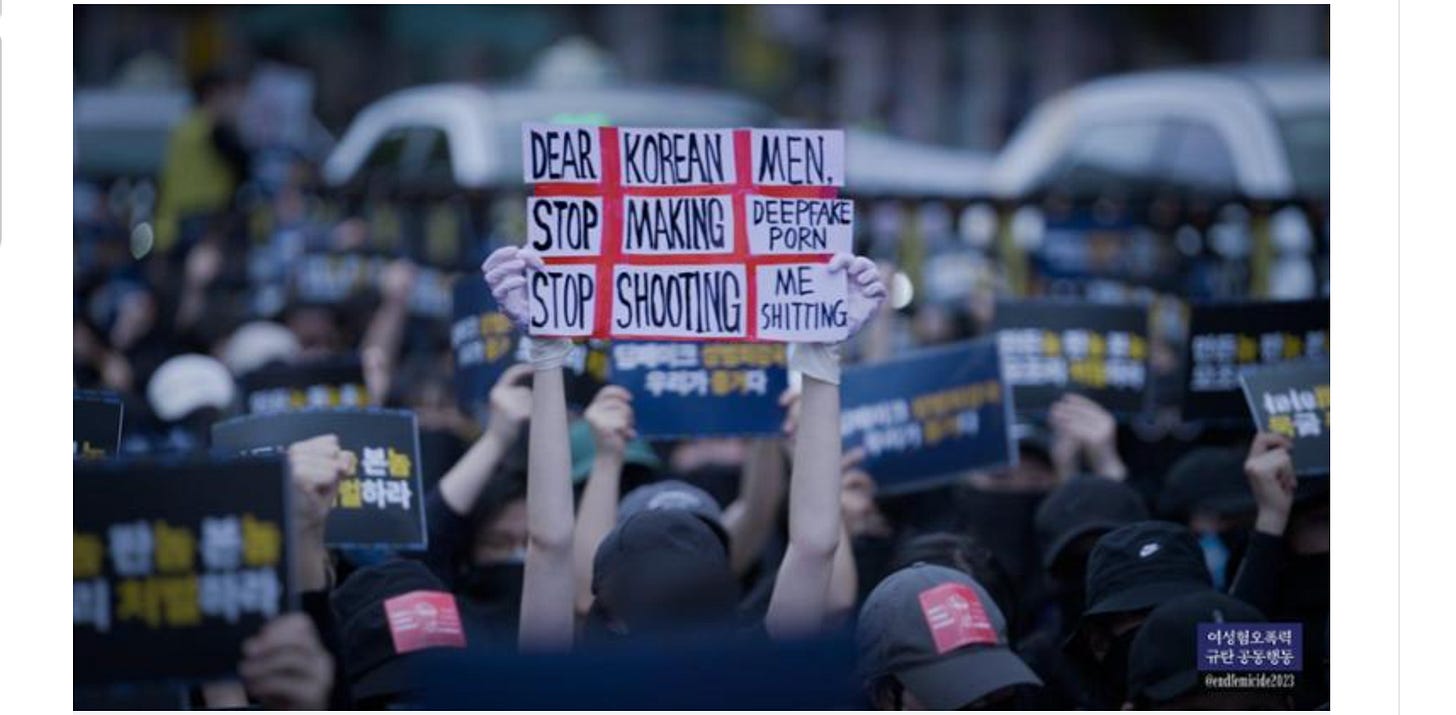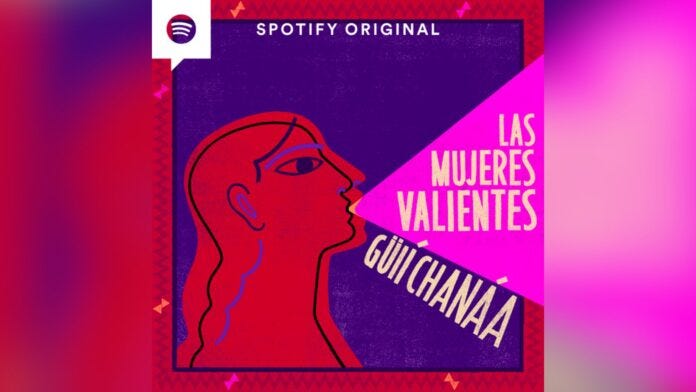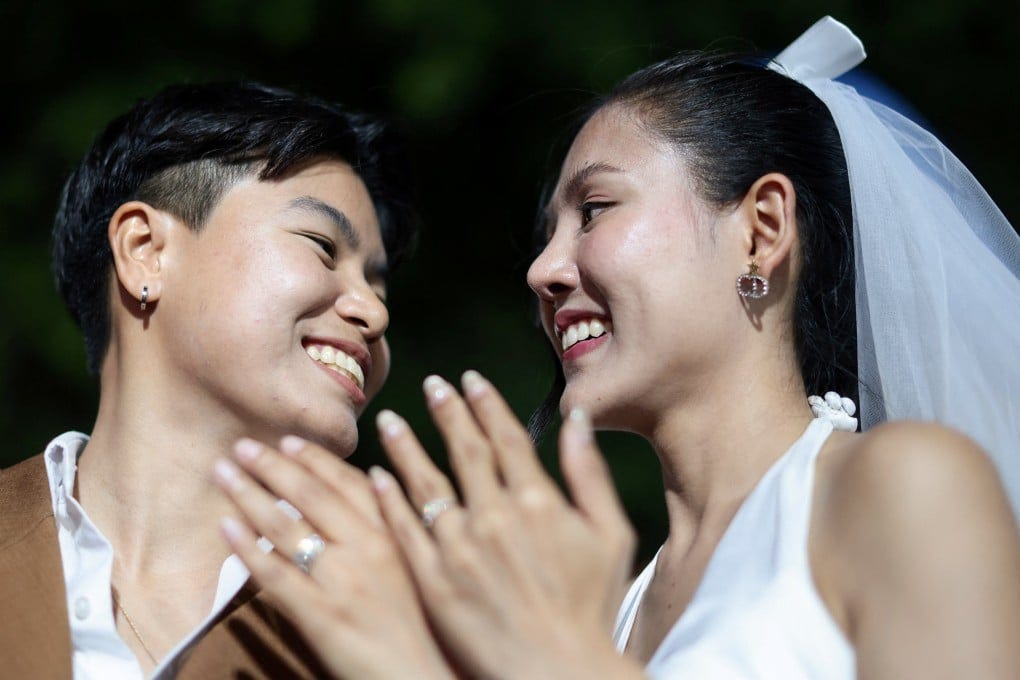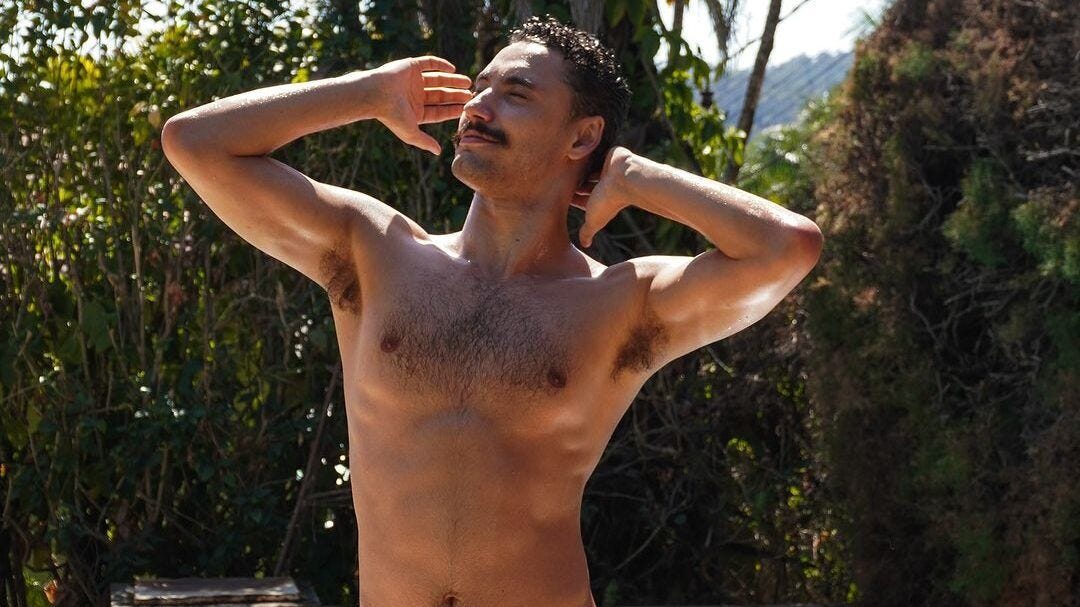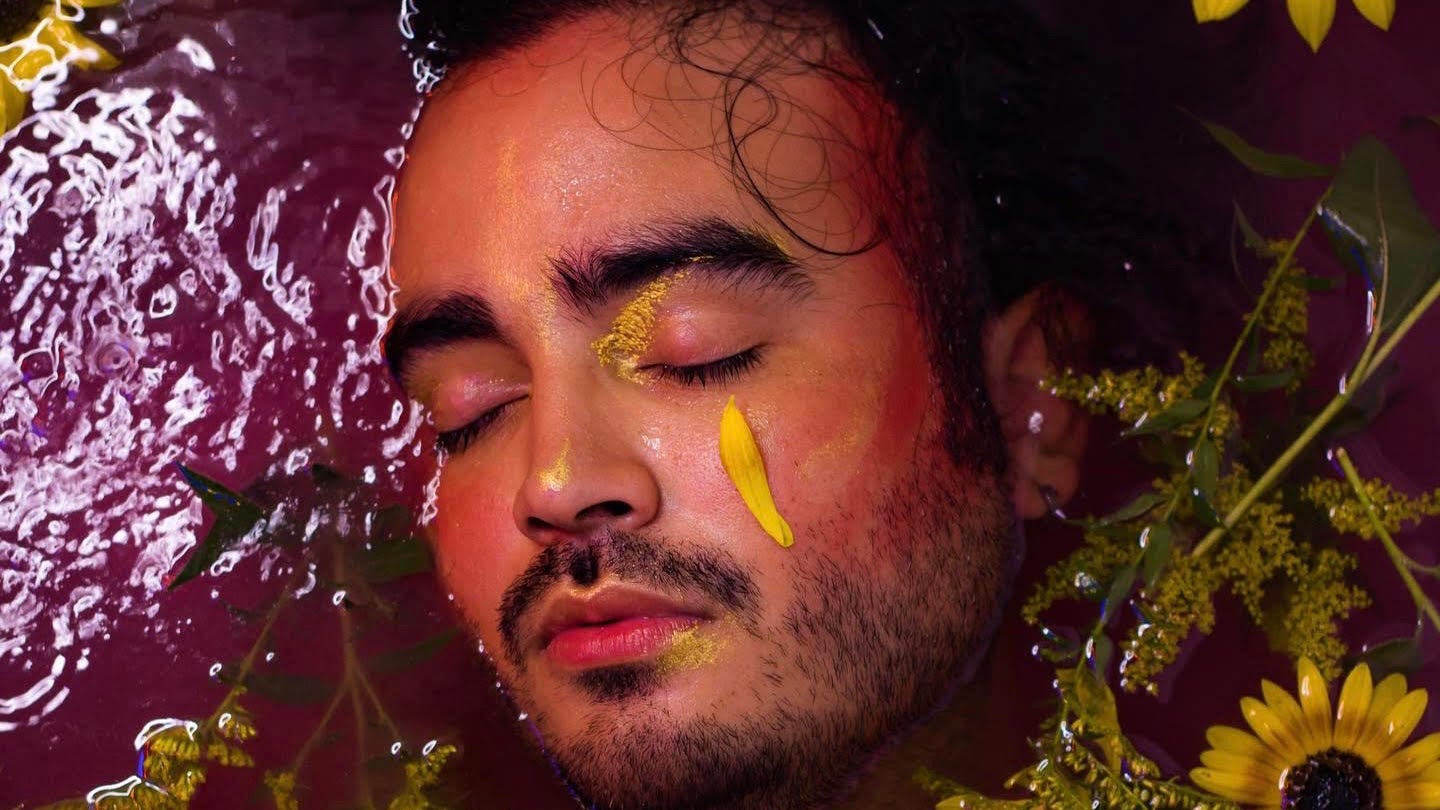Global Roundup: S. Korea Women Protest Deepfakes, Indigenous Woman's Pioneering Podcast in Mexico, Same Sex Marriage in Thailand, Bisexual Athletes, Queer Latinx Artists
Masked female protesters attend a rally in northeastern Seoul, Saturday. Photo Joint Action to Condemn Misogynistic Violence via Korea Times
Protesters accused the government of largely neglecting sexual offenses that are evolving rapidly with the latest technologies. They argued that current laws are insufficient to address such crimes and called for a new legal system and stronger political will to combat them effectively.
The protest was rganized by the "Joint Action to Condemn Misogynistic Violence," a women's rights group launched mostly by university students.
Human Rights Watch (HRW) has said that South Korea faces “an epidemic of digital sex crimes, hundreds of women and girls targeted through deepfake sexual images being shared online.” According to the rights organisation, the number of reported deepfake cases alone has soared from 156 in 2021 to 297 as of July this year. One group sharing these images reportedly has 220,000 members, HRW said.
"We told you not to film illegally, and now you are doing deepfake?" the protesters chanted, urging the National Assembly, police and all relevant government bodies to take action.
The crime of deepfake sexual exploitation is not new. Women have faced sexual crimes for decades, with their faces and identities exposed in male online communities, while the state has downplayed the severity and remained passive. As a result, women across the country are anxious and fearful of becoming victims, leading many to abandon their daily lives. -Joint Action to Condemn Misogynistic Violence
Several protesters said they were in constant fear over the possibility that such fake online content may ruin their real life.
Every time we do group assignments and hang out with male students, we have to worry about being victims of crime, We have to blame a society that has no choice but to suspect all men before telling us not to treat them as potential criminals. -anonymous university student
A teenage protestor said she had been scared to join the demonstration, worried that her involvement could attract unwanted attention from deepfake criminals.
I came here because I realized that nothing changes by grieving and being angry alone. Deepfake crime didn’t emerge in a vacuum. It is the result of decades of abetted sex crimes and is a product of deep-rooted patriarchy that has persisted for thousands of years. If the perpetrators are not punished, second and third crimes will continue. -teenage protestor
The majority of the perpetrators and victims in deepfake crimes are teenagers.
Nayeli López Reyes, a 27-year-old artisan and podcaster from the indigenous Triqui community of San Martín Itunyuso, Oaxaca, Mexico, has become a voice for women through her podcast series, Guii Chanaa/Mujeres Valientes (Brave Women).
In six episodes, López narrates the experiences of women in her community, revealing the violence they face and how traditional marriages, often involving the exchange of money, continue to shape their lives. The series is available in both Spanish and the Triqui language, captures stories from the very heart of San Martín Itunyuso.
The podcast, a first-of-its-kind initiative to give voice to Triqui women, covers topics like the marriage customs of past generations, the societal restrictions women face, and the continuing issue of women being sold into marriage.
in 2021 when she won a competition hosted by Spotify called “Sound Up.” Out of 10 finalists, López was one of two winners selected to bring her podcast to life. According to El Universal, López credits her sister, Gabriela, for helping with translations between Triqui and Spanish.
For López, the significance of her work lies in breaking the silence that surrounds the experiences of women in her community. The series not only exposes the domestic violence that many women endure but also tackles broader issues of discrimination and racism.
I’ve experienced violence as a child and now as an adult. There is no safe place for us — not in the village, not in the city. Violence is everywhere…Violence exists outside too, in the form of discrimination and racism. It’s a violence against our bodies. -Nayeli López Reyes
López also speaks out against the practice of child marriage, a custom still prevalent in many indigenous communities. She emphasizes that the push for change must come from within, from the women themselves.
Guii Chanaa is the first podcast in the Triqui language that addresses these deeply rooted cultural practices from a woman’s perspective. López acknowledges that her work has inspired other women to speak out.
Her work has now earned her the prestigious 2024 Gabriel García Márquez Prize for Journalism in the Audio category.
Lesbian couple Juntagon Seneewong Na Ayutthaya, 29, and Kamontip Aurareemaitrichit, 29, attend an LGBTQ+ Pride parade to celebrate after Thailand’s passing of the marriage equality bill, in Bangkok, Thailand, June 30. Photo: Reuters
The Thai king has signed same-sex marriage into law, the official Royal Gazette said Tuesday, making Thailand the first country in Southeast Asia to recognise marriage equality. Activists hailed a “monumental step” as Thailand becomes only the third place in Asia where same-sex couples can tie the knot, after Taiwan and Nepal.
King Maha Vajiralongkorn gave royal assent to the new law, passed by parliament in June, which will take effect in 120 days – meaning the first gay weddings are expected to take place in January.
The law on marriage now uses gender-neutral terms in place of “men”, “women”, “husbands” and “wives”, and also grants adoption and inheritance rights to same-sex couples.
The king’s formal approval marks the culmination of years of campaigning and thwarted attempts to pass equal marriage laws.
We are all delighted and excited. We’ve been fighting for our rights for over 10 years, and now it’s finally happening. -Siritata Ninlapruek, an LGBTQ activist
Waaddao Chumaporn, an LGBTQ rights advocate, plans to organise a mass wedding for more than a thousand LGBTQ couples in Bangkok on January 22, the first day the law takes effect.
Rayan Castroi Dutra represented Brazil - and Team LGBTQ - in trampoline gymnastics at the Paris Olympics.
To mark Bisexual Visibility Day, which has been observed annually on Sept. 23 since 1999, Outsports featured 21 out bi athletes. “Young bi athletes are making it more comfortable for bi people every single day,” wrote Alex Reimer in a feature for Outsports in 2020.
Here are four of the 21 athletes featured.
Jack Dunne (rugby union)
The Irish lock came out publicly three years ago and went on to sign for Exeter Chiefs, one of England’s elite clubs. “When I went into the world of pro rugby, everyone was just really supportive,” Dunne reflected in a chat with RTE last year. “It’s been overwhelmingly positive.”
Rayan Dutra (trampoline gymnastics)
Even before competing at his first Olympics, Dutra was a big hit on TikTok and Instagram. The Brazilian spoke publicly about his sexuality for the first time with Outsports in April and a few months later, he finished in the top 12 in Paris. He’s rarely seen without a huge smile on his face.
Alisha Lehmann (soccer)
With more than 28 million followers across Instagram and TikTok, Juventus and Switzerland forward Lehmann is kind of a big deal. Being open about her relationship status never seems to have fazed her, however. She previously dated teammate Ramona Bachmann, and now she is with boyfriend Douglas Luiz, who is also a Juve player. “My generation grew up in such a way that everyone is accepted,” she told Sky Germany last year.
Sha’Carri Richardson (track and field)
Back in 2015, Richardson dropped a tweet that reads “My family knows I’m bi”. Now she’s a global track and field superstar, and became the sixth fastest woman in history when she ran the 100 meters in 10.65s to claim the 2023 world title. At her first Olympics in Paris, she claimed gold and silver medals. The track at her old high school in Dallas has just been named after her.
Daniel Arzola Photo: Mikha Dominguez
To mark National Hispanic Heritage Month, which is annually celebrated from September 15 to October 15 in the United States, LGBTQ Nation featured eight queer Hispanic artists explore the multifaceted nature of their cultural heritage, gender, and sexuality, often challenging stereotypical portrayals and creating space for marginalized voices.
Alma Lopez
Alma Lopez was born in Mexico, but moved to Los Angeles as a child. Her art frequently portrays Mexican historical and cultural figures filtered through a radical feminist lesbian lens. Combining digital media with traditional techniques, Lopez’s creations are intended to empower women and indigenous Mexicans by reappropriating symbols from a time when women played a more prominent role in the culture. Her work is often seen as controversial.
Rafael Trelles
Puerto Rican postmodern artist Rafael Trellis is celebrated for his vivid and imaginative experimental graphical work designed for placement in urban settings like sidewalks, walls, and telephone poles. Trelles’ art has been praised for its ability to transcend cultural boundaries and challenge established norms, offering a fresh perspective on the intersections of queer and Latine identities.
Daniel Arzola
Daniel Arzola is an illustrator and human rights activist known for his socially engaged art that addresses LGBTQ+ rights and gender equality. A queer artist of Venezuelan-American heritage, his work has been widely shared on social media, and his series of posters, “No Soy Tu Chiste” (I’m Not a Joke), was the first LGBTQ+ campaign to reach the media in Venezuela. The Carlos Jáuregui station of the Buenos Aires subway features a mural, stairs, and balconies designed by Arzola that documents the struggle of the Argentinian queer community.
Thank you for reading Global Roundup. You can support FEMINIST GIANT by:
Hitting the heart button so that others can be intrigued and read
Upgrading to a paid subscription to help keep FEMINIST GIANT free
Opting for a one-time payment via buying me a coffee
Sharing this post by email or on social media
Mona Eltahawy is a feminist author, commentator and disruptor of patriarchy. She is editing an anthology on menopause called Bloody Hell! And Other Stories: Adventures in Menopause from Across the Personal and Political Spectrum. Her first book Headscarves and Hymens: Why the Middle East Needs a Sexual Revolution (2015) targeted patriarchy in the Middle East and North Africa and her second The Seven Necessary Sins For Women and Girls (2019) took her disruption worldwide. It is now available in Ireland and the UK. Her commentary has appeared in media around the world and she makes video essays and writes a newsletter as FEMINIST GIANT.
FEMINIST GIANT Newsletter will always be free because I want it to be accessible to all. If you choose a paid subscriptions - thank you! I appreciate your support. If you like this piece and you want to further support my writing, you can like/comment below, forward this article to others, get a paid subscription if you don’t already have one or send a gift subscription to someone else today.


